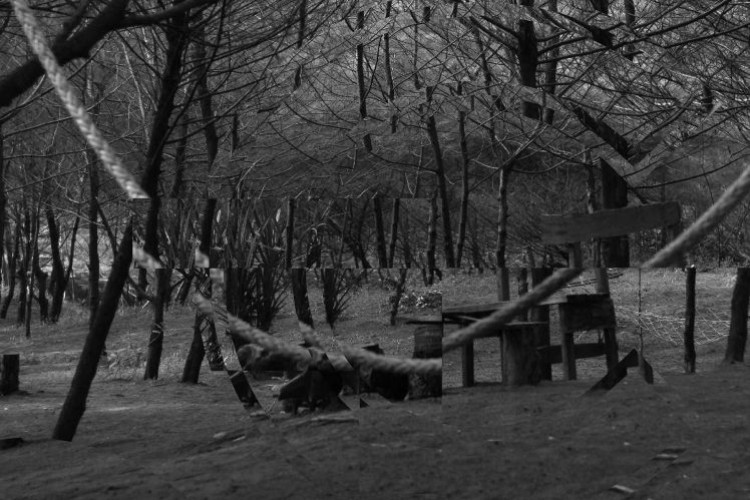
Ceasefire Never Was a Solution: Palestine Have to Be Free
In this Open Column submission, Fikri Haikal Panggabean shows us that it is really not that complex to understand the occupation and genocide happening in Palestine: as a privileged society, we just have to check who has the control over this bloody conquest.
Words by Whiteboard Journal
As you’re reading, the onslaught and genocide in Palestine are still happening. We’ve also been seeing major public figures and even celebrities urging for a ceasefire. But what it seems to me, and perhaps to a lot of us, is that a mere ceasefire is not going to solve the “problem”. Ceasefire is always booked and considered as the solution for most major public figures, including perhaps some of your favorite celebrities, actors, and musicians. But Palestinians have been long telling us that, just like any previous onslaughts on Palestine, it’s never going to solve the problem. The demand should not just be a ceasefire but an end to occupation and apartheid.
This is not by any means implying that a ceasefire is not necessary. It is the bare minimum. So is the humanitarian pause. But as we’re learning and re-learning about Palestine, we finally came to the realization that it is totally different from what the media has been telling us. The root cause of the long-standing “conflict” and “violence” is occupation and ethnic cleansing that have been happening for the last 75 years. Instead of painting this as a religious conflict, we have the privilege of such understanding, but somehow we are still trapped in finding the so-called “solution” or “way out”. First and foremost, it’s important to listen and amplify the Palestinians’ voice. Their experience is definitely worth more than any “political” analysis you’re seeing online. After listening to them, as we should always try to do, despite all the different factions and ideologies of the Palestinian people, you’ll see the same patterns. All Palestinians want to go back to their homes, in legal terms, right to return. The other point that is collectively agreed upon by all Palestinians are this is classic colonization, and to uphold the system, Israel has been implementing the system of apartheid by making sure not all the people that live within the border of the region have the same rights. The apartheid system is also implemented upon Palestinians that have Israeli citizenship, as we’re seeing huge inequality in Palestinian school and neighborhood funding, even in employment rates. According to Adalah (the legal center for Arab minority rights), there are at least 62 discriminatory laws towards Palestinian Arab citizens, including revocation of citizenship, the absentees’ property law that prevents Palestinians who’ve been exiled from reclaiming their property, and the law of return that’s only exclusive to Jewish people. Israel also renewed their law banning mixed-ethnic marriage, meaning Palestinians and Jewish people cannot marry.
When you’re reading all of these facts are being institutionalized, it is suddenly not complicated at all. Especially when you’re considering the fact that they’ve been ethnically cleansed since the start of Nakba, meaning catastrophe in Arabic. Despite that, their right to return is enshrined under the international law, just like any other Palestinian right that’s been portrayed as unprovoked. But in trying to do so, they also need to face the constant dehumanizing claims that they are terrorists full of wrathful groups of people.
So why are we still trapped in this rhetoric? The answer is the fallacy of peace. Peace is easy to achieve when you’re holding the status quo, meaning you have control over the narratives. Peace is not viable for people under constant aggression and oppression. The Palestinians, despite being framed as a very hospitable and favorable people, especially here in Indonesia, have never really known peace since almost 80 years ago. For them, peace is probably a full week without their refugee camps being raided. The whole argument in the media pointing out Hamas also seems to refute the idea that Palestinians deserve humanity. It’s absolutely distracting that, as many humanitarian organizations have stated, the current situation amounts to genocide. So, the solution to genocide is not a ceasefire, knowing the fact that the perpetrator is going away with impunity.
So again, as we’re listening to Palestinians, the solution is not a ceasefire but calling an end to apartheid and occupation. We can also do the same thing by listening to them about which avenues and means we should take to support their struggle. All Palestinians are supporting and endorsing the call for Boycott, Divestment and Sanctions (BDS) of the apartheid regime, which was inspired by South Africa. This is, by far, the most possible thing to do for us as an international community, not just to support Palestinians but also to pressure our government to do the same thing. BDS includes academic and literary works, divesting from any corporation that is partaking in the occupation of Palestine through targeted boycotts of all the list of complicit parties that you can check out yourself on their websites and pages on social media. BDS also includes pressuring our own government to comply with and support BDS. Especially here in Indonesia, despite the fact that the state doesn’t have any diplomatic relations with Israel, they still trade with Israel, including in weaponry. Besides supporting this, some of us can also donate to humanitarian relief, especially the ones that the Palestinians have confirmed to be valid. The last one would be sharing news, articles, and reading materials, especially from Palestinian writers and authors, in the hope that more people will get “educated” on the Palestinian matter.
Solidarity for the oppressed people. It’s always been Free Palestine.












